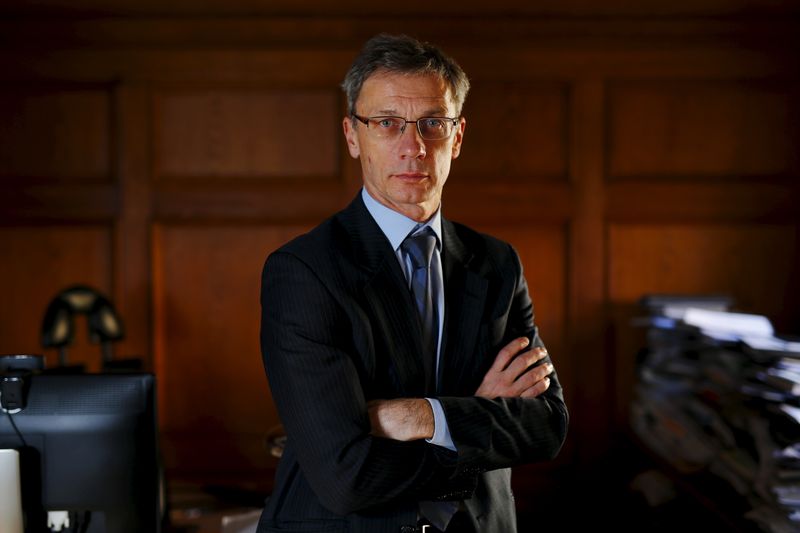(Reuters) -Weaker economic growth could bring euro zone inflation down faster, but a resilient labour market continues to produce quick wage growth, creating upside risk for prices, European Central Bank policymaker Boris Vujcic said on Friday.
The ECB is now debating whether to pause with rate hikes after an unprecedented period of monetary tightening, and policymakers are sifting through inflation data to see if they have done enough.
Vujcic would not say which way he was leaning for the Sept. 14 policy meeting but said it would be many months before the ECB could conclude that interest rates have peaked and it might take until next spring to be certain that inflation, still above 5%, would be returning to the 2% target.
"Wage pressures are still there and from the recent data we don't see them coming down in a significant way," Vujcic, Croatia's central bank chief, told the Reuters Global Markets Forum. "As long as it is like that, I'm afraid that the last mile (of disinflation) ... will be very difficult."
Markets are now overwhelmingly betting on unchanged rates in September and only see a one in two chance of another rate hike before the end of the year, to be followed by cuts in mid-2024.
But Vujcic warned that the downward path in prices may not be so linear and there was a risk that price growth could stall above the target, which would then force the ECB to return to monetary tightening later.
"We are reaching the terminal rate although as we say we don't know where it is," Vujcic said. "Nor will we know in September; we will not know probably in October or November where the terminal rate is."
Vujcic acknowledged that growth is weaker than the ECB had projected and said this could even help disinflation but the economy is more in a stagnation mode rather than in recession.

"If the economy slows down significantly faster, that will certainly then bring inflation down faster," Vujcic said. "And then the response of the central bank is of course that it can cut either sooner or more aggressively."
But rate cuts are not likely until the ECB has clear evidence that inflation is on a sustainable downward path towards 2% and real interest rates are well in positive territory, Vujcic added.